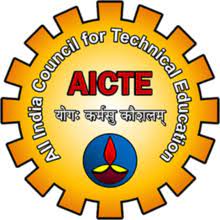EGTET 2020
1st International Conference on Emerging Trends in Engineering and Technology
6 – 7 March 2020

OBJECTIVE
The ever growing population in urban areas has started to exert immense pressure on the urban infrastructure such as food, water supply; waste management etc. and this in turn has led to development of Smart Cities. The 1st international conference on Emerging Global Trends in Engineering and Technology (EGTET-2020), based on the theme “Smart City” will introduce us to the various technological aspects that is involved in the making of a city that is well planned, technologically advanced and eco-friendly. Scientists and Researchers have been working towards cleaner, greener and efficient technology so that the overall quality of life is improved as well as the goal of sustainability is also reached.
The conference, scheduled to be held on 6th & 7th March 2020 at Azara campus of Assam Don Bosco University, aims to bring together researchers working in diverse areas of Engineering and Technology to interact and exchange new ideas and also to explore possible R&D collaborations. EGTET 2020 will be an ideal platform for industry professionals, researchers, engineers and academicians from all over the country and abroad to share views and present their findings to raise awareness among stakeholders to promote a better understanding of the concept of Smart Cities
CALL FOR PAPERS
The thematic areas for the conference include, but are not limited to:
Area 1: Smart Buildings, Infrastructures and Disaster Management
- Design of smart buildings and infrastructures
- Smart sensors for home, buildings and infrastructures
- Smart building maintenance management system
- Smart infrastructure asset management system
- Smart pavements, roads and bridges
- Smart underground pipes and structures
- Smart City and Urban Planning
- Smart Urban disaster Management system
- Smart heating and ventilation
- Smart material
- Smart building Safety
- Green Infrastructure
Area 2: Smart Governance
- E- Governance
- Smart video surveillance and crime prevention systems
- Safety in urban environment
- Woman safety
- Smart policing
- Smart city education, training and social services
- Modeling security, safety and privacy for smart city
Area 3: Technologies for Smart Cities
- Clean Air and air quality monitoring system
- Clean water and efficient distribution system
- Urban flood management
- Smart energy metering and power grids
- Distributed generations
- Energy Storage
- Hybrid energy sources
- Electric vehicles
- Power Converters
- Renewable energy sources for smart cities
- Distribution Management system
- Smart vehicles and parking management
- Intelligent Traffic management
- Intelligent public transport management system
- Smart Agriculture
- Environment Monitoring System
- E-waste management
- Urban Waste management
- Waste recycling and reuse
- Sensor technologies and applications
- Smart Health care system
- Social Computing and Social Networks
- Embedded Computing and fog computing
- Smart mobile devices
- Future Internet Architecture and Protocols
- Intelligent systems and machine learning approaches and algorithms for smart cities
- Real-time decision analysis/support systems for monitoring and managing smart cities
- Big data analytics (concepts, methods, techniques and tools)
- Cloud computing and cloud-based data sharing solutions for smart cities
Area 4: Wireless Connectivity for Smart Cities
- Architectures for the Internet of Things (IoT)
- Smart Mobile devices
- Wireless Communications
- Wireless Sensor Networks
- IoT Based Smart System
- Machine to Machine (M2M) communication
- Mobile broadband technologies (3G/4G/5G) to support connectivity in smart cities
